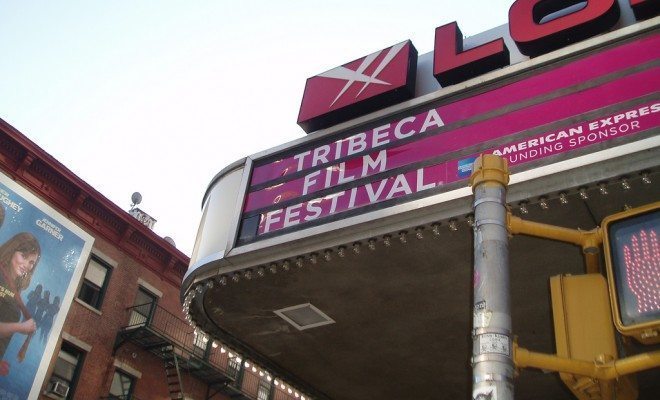 Image courtesy of [Clementine Gallot via Flickr]
Image courtesy of [Clementine Gallot via Flickr]
Entertainment
Tribeca Film Festival Storyscapes Examine Big Data & Confidentiality
The 2015 Tribeca Film Festival kicks off its 14th year of programming this week. Since its inception, the Festival has enabled directors and filmmakers from all over the world to showcase their independent movies and new projects.
Some of those projects include interactive elements. The Tribeca Film Festival’s Storyscapes program features five immersive projects vying for the 2015 Storyscapes Award. Two of the projects are particularly concerned with one overarching theme—access to personal data.
Is privacy a luxury in the age of the Internet? Corporations such as Google and Facebook often track consumers’ online behavior without their express consent. The data is collected and used to create specifically targeted advertisements under the guise of “personalization.” Businesses aggregate millions of dollars worth of information for free; they never compensate consumers for the info they provide.
Here’s a very mild example: Teen girl posts online status about coffee. Teen girl gets Facebook ads exclusively for Starbucks. Teen girl looks at ad, is reminded of the company, and gets her afternoon Frappucino. (Starbucks +1, Teen girl -$3.95)
The average Joe and/or suburban coffee addict can’t sue big companies for using their data because, usually, people sign contracts that they never read. (Case in point: when’s the last time you updated Flash? Did you read all the licensing copy before you clicked “I Agree” and continued? Didn’t think so.) In the fine print of many software or program updates, in extremely bombastic and verbose legalese, is a section that states that you allow the program to use any and all of your information free of charge if you sign on the dotted line.
Let’s take a look at the two Tribeca Storyscapes projects that address the commodification of personal information.
DO NOT TRACK
“Do Not Track” is a personalized documentary program that discusses the dangers of having an increasingly personalized online experience. If users are only shown ads that are relevant to them, will that make them intolerant of other advertising…or even other people?
Consumers have become accustomed to serving up their information online—it’s become a nasty little modern habit rather than a cultural annoyance. People have embraced the companies that use data mining to sell products…where’s the outrage? Perhaps you’ll find it at the live installation.
Check out dates/times to visit the installation here.
KAREN
The considerably less political (but just as provocative) project “Karen,” has been brought to Tribeca by Blast Theory, developed in partnership with National Theatre Wales. Karen is a life coach app who asks the user questions to determine his psychological profile. Blast Theory’s website claims that Karen “starts to identify things she shouldn’t know.” In trying to create a thrilling and personal experience, the creators of Karen looked into different methods of information aggregation.
We became fascinated with big data, and particularly how governments and large companies such as Facebook are collecting data on us secretly and using it without our consent.
Karen’s evaluation of your personality may reveal unsettling details about your cyber security. Want to hear Karen for yourself? Schedule your appointment here. (Bonus points if you recognize the performer who plays Karen, actress Claire Cage, from the British TV series Coronation Street.)
Wonder how much public information you can find about yourself online? Try conducting a search in a brand new window. Open Google Chrome, click File, and then select New Incognito Window. If you use this option, your new search won’t be tainted by your past search history. Happy Googling!








Comments